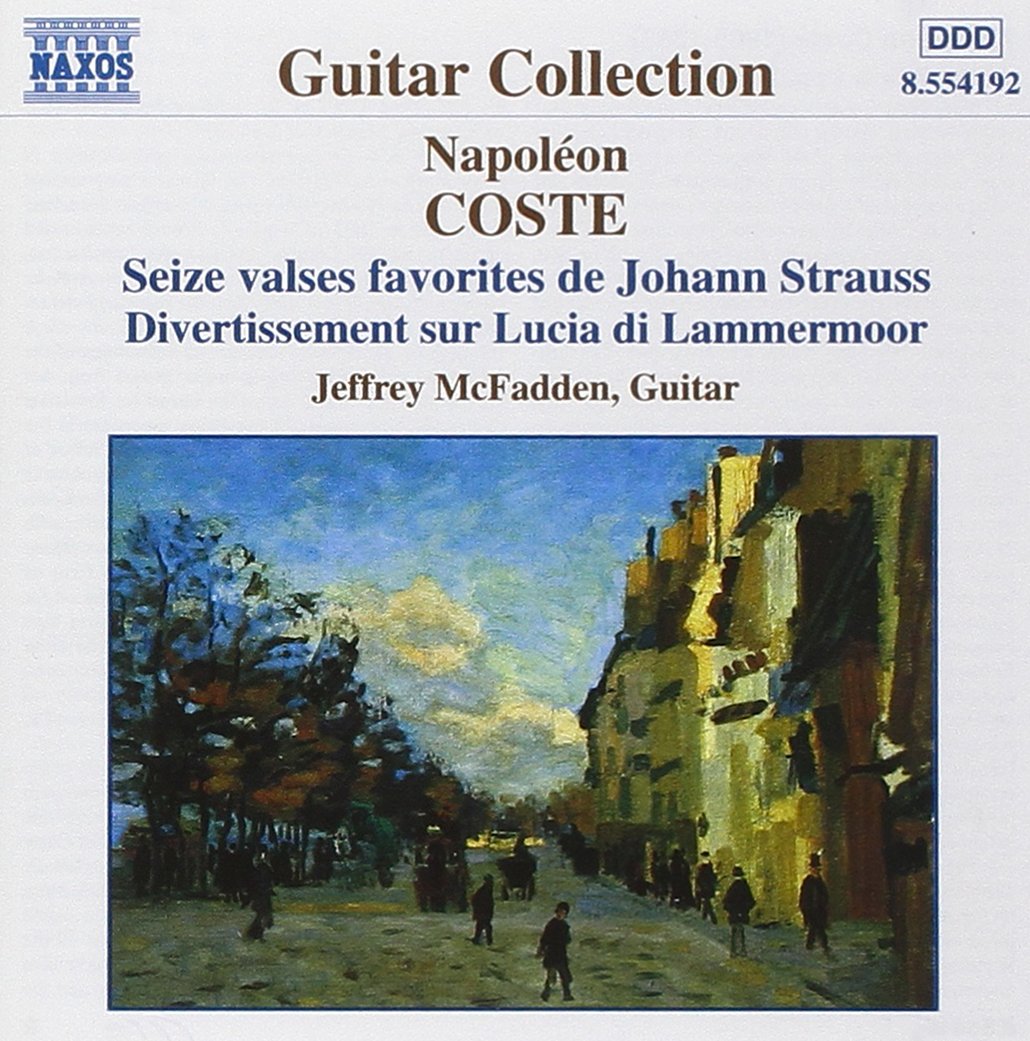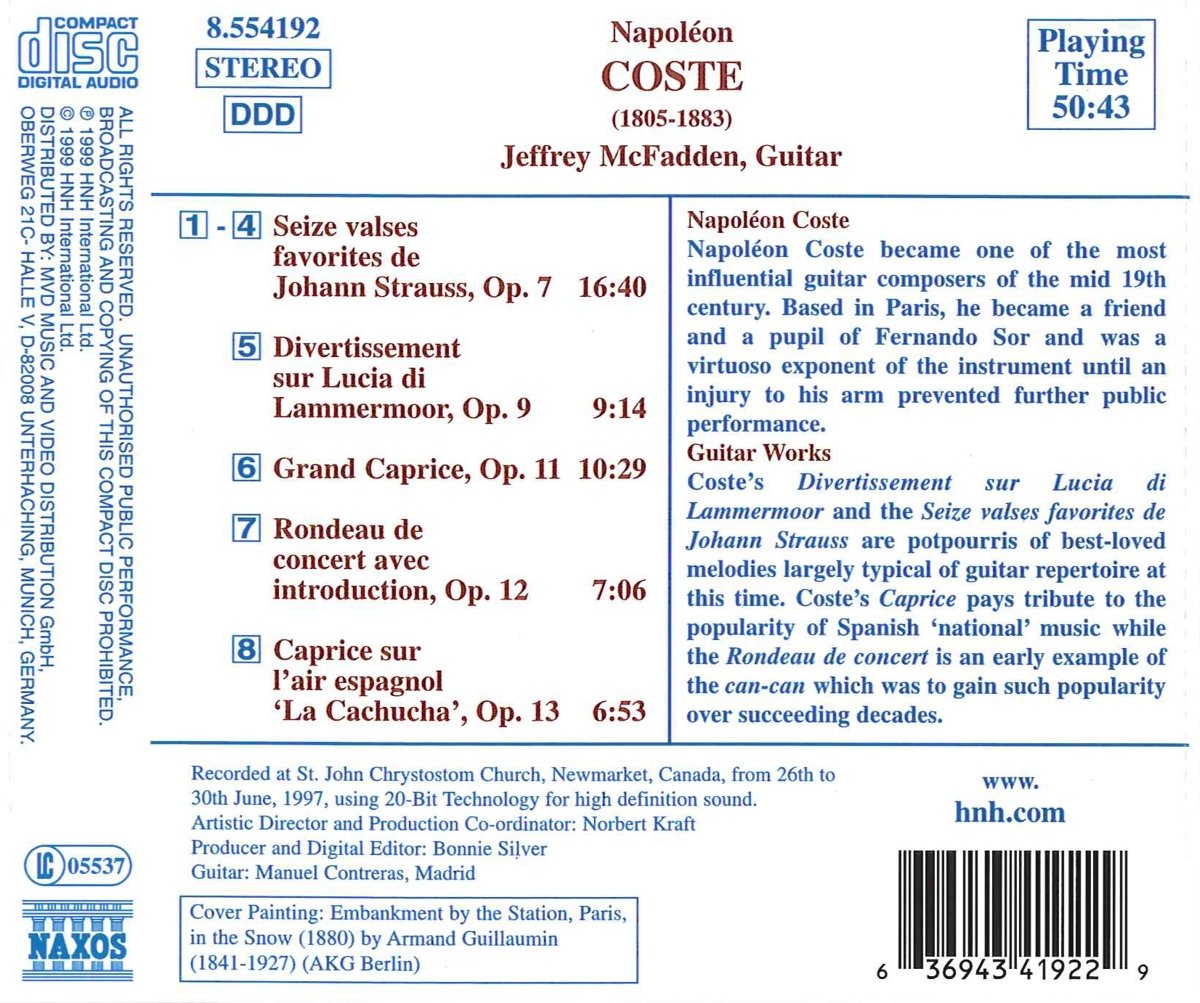
kompozytor
Coste, Napoleon
tytuł
COSTE: Guitar Works
wykonawcy
McFadden, Jeffrey
nr katalogowy
8.554192
opis
Napoléon Coste was France's greatest guitar composer and, together with Mertz, the guitar composer most representative of the Romantic style. Coste was born in 1805 in the village of Amondans. His father, the village mayor and a former infantry captain, named his son for the new Emperor and groomed him for a military career. From age six, young Napoléon also began to play guitar, taking his first lessons from his mother. At the age of eleven Coste suffered an extended and serious illness, and his parents seem to have abandoned their plans for his military career. The teenaged Coste, living in Valenciennes, gained local fame as a performer and teacher of the guitar, and in 1828 even played duets with the visiting Italian virtuoso Luigi Sagrini (they performed Giuliani's Op. 130). In 1830, the year of the July Revolution, Coste moved to Paris to pursue his career.
•
Paris was not only one of the great cultural centres of the world, it was also, in the 1820s, home to a guitaromanie, a rage for the guitar, which probably did not so much abate in the 1830s as become less remarkable in a city which saw new fads commencing daily. Coste studied theory and composition in Paris and became the friend and pupil of Fernando Sor (1778-1839), the esteemed Spanish composer and guitarist. By the end of the 1830s, Coste was immersed in the Parisian musical scene, and his compositions from this period demonstrate both his versatility and the broad variety of cultural influences on music during the period. Coste published many of his compositions, so it is sometimes impossible to assign each work a precise date.
nośnik
CD
gatunek
Muzyka klasyczna
producent
Naxos
data wydania
07-06-1999
EAN / kod kreskowy
636943419229

(Produkt nie został jeszcze oceniony)
cena 58,00 zł
lubProdukt dostepny w niewielkiej ilości.
Wysyłka w ciągu 3 dni roboczych
Darmowa wysyłka dla zamówień powyżej 300 zł!
Darmowy kurier dla zamówień powyżej 500 zł!
sprawdź koszty wysyłki




































